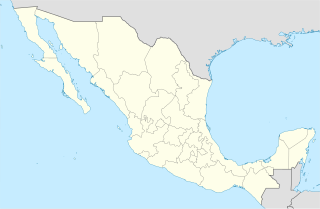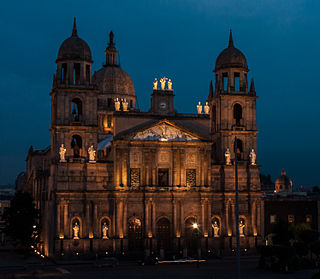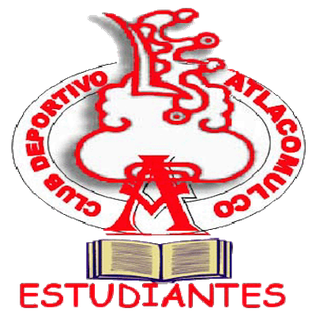
Jiutepec is a city and its surrounding municipality in the Mexican state of Morelos.

The Mazahuas are an indigenous people of Mexico, primarily inhabiting the northwestern portion of the State of Mexico and small parts of Michoacán and Querétaro. The largest concentration of Mazahua is found in the municipalities of San Felipe del Progreso and San José del Rincón of the State of Mexico. There is also a significant presence in Mexico City, Toluca and the Guadalajara area owing to recent migration. According to the 2010 Mexican census, there are 116,240 speakers of the language in the State of Mexico, accounting for 53% of all indigenous language speakers in the state.

The Roman Catholic Archdiocese of Toluca is a metropolitan archdiocese of the Catholic Church. Along with the Dioceses of Acapulco, Chilapa and Tacámbaro, it lost territory when the Diocese of Ciudad Altamirano was erected in 1964. It further lost territory in 1984 with the formation of the Diocese of Atlacomulco. On 26 November 2009, it lost territory again when Pope Benedict XVI created another suffragan diocese for the Archdiocese of Mexico, the Diocese of Tenancingo.

Atlacomulco is one of 125 municipalities in the State of Mexico located in the northwest of the State of Mexico in central Mexico, 63 kilometres (39 mi) from the state capital of Toluca. The municipal seat is the city of Atlacomulco de Fabela. The name is derived from the Nahuatl phrase "atlacomulli" which means "where there are wells." The city, with a population of 20,477 is surrounded by rural area in which 75% of the rest of the municipality lives. The municipality has a sizable percentage of indigenous language speakers, mostly Mazahua. The Mazahua name for the area is Embaró, which means "colored rock." Agriculture is still the main economic activity, but the development of a number of industrial parks, such as Atlacomulco 2000, which allowed the seat to reach city statues by 1987. Atlacomulco is also the origin of a political organization called the "Atlacomulco Group" made up of powerful political figures who deny its existence.

Jocotitlán is a municipality located in the northwestern part of the State of Mexico on the central highlands of the country of Mexico. The municipal seat is the town of Jocotitlán and is located at the foot of the Jocotitlán or Xocotépetl volcano, while most of the rest of the municipality is in the Ixtlahuaca Valley. The area has culturally been Mazahua since the pre-Hispanic period, with this indigenous group's traditions strongest in a number of smaller communities in the municipality. Jocotitlán is also home to the Pasteje Industrial Park, which was established in the 1960s, and began the industrialization of the economy. Today, about half of the municipality is employed in industry.

José Isidro Fabela Alfaro was a Mexican judge, politician, professor, writer, publisher, governor of the State of Mexico, diplomat, and delegate to the now defunct League of Nations. Fabela was born in Atlacomulco, Mexico State. He was a member of the group of intellectuals opposed to the Porfirio Díaz regime, the Ateneo de Juventud, a group that also included José Vasconcelos and Diego Rivera. He served prominently revolutionary leader Venustiano Carranza and went on to hold many important posts in the Mexican government.

Mexiquense TV is the public television network of the Mexican State of Mexico. It is operated by the Sistema de Radio y Televisión Mexiquense, a state agency which also owns six radio stations. It consists of two high-powered television transmitters covering the valleys of Toluca and Mexico, supplemented by 28 retransmitters.
Federal Highway 126 is a free (libre) part of the federal highways corridors of Mexico. The highway runs from Morelia, Michoacán in the west to El Oro de Hidalgo, State of Mexico in the east. The eastern portion of the highway continues on to Atlacomulco as Fed. 5. The two nearest federal highways to the western and eastern termini of Fed. 126 are Fed. 55 in Atlacomulco and Fed. 15 in Morelia.
The Arco Norte, designated and signed as Federal Highway M40D, is a toll road in Mexico. It serves as a bypass around Greater Mexico City and currently links the Mexico-Puebla toll road on the east with the Mexico-Guadalajara toll road on the west.

The Atracomulco Group is an alleged Mexican political organization made up of powerful political figures within the Institutional Revolutionary Party (PRI), who have denied its existence. The group is alleged to be based in Atlacomulco and to have been very influential in the politics of Mexico State and the federal government. However, the most influential people linked to the group, such as Isidro Fabela, Carlos Hank González, Enrique Peña Nieto and Arturo Montiel have denied its existence or refused to confirm its existence. The group was considered to be one of the pillars of the PRI.

Oscar Francisco Jiménez Fabela is a Mexican professional footballer who plays as a goalkeeper for Liga MX club América.
Sistema Educativo Justo Sierra is a private school and university system in the Mexico City metropolitan area. Universidad Justo Sierra is a part of the system.

Jocotitlán, also known as Xocotépetl, is a volcano in the Jocotitlán and Atlacomulco municipalities, in the State of Mexico. At 3,910 metres (12,828 ft) above sea level, its summit is the 12th highest peak of Mexico.
Federal Highway 15D is the name for toll highways paralleling Federal Highway 15. The toll segments of Highway 15D include some of the most significant highways in the country along the Nogales-Mexico City corridor. The highway is the southern terminus of the CANAMEX Corridor, a trade corridor that stretches from Mexico north across the United States to the Canadian province of Alberta.

Alfredo del Mazo Vélez was a Mexican politician affiliated with the Institutional Revolutionary Party. He was the Governor of the State of Mexico from 1945 to 1951 and served as the Secretary of Hydraulic Resources during the six-year presidency of Adolfo López Mateos.

Tlazala de Fabela is a town and municipal seat of the municipality of the Isidro Fabela Municipality in the State of Mexico in Mexico. The municipality covers an area of 179.82 km².

Club de Fútbol Estudiantes de Atlacomulco is a Mexican football club that plays in the Liga TDP. The club is based in Atlacomulco, State of Mexico and was founded in 1991. In 2019 the team was relocated from Atlacomulco to El Oro, in 2022 they returned to Atlacomulco.
The statue of Andrés Manuel López Obrador was a limestone sculpture of the 65th president of Mexico, Andrés Manuel López Obrador. It was installed at the intersection of Isidro Fabela Avenue and Circuito José Jiménez Cantú, in Atlacomulco, a municipality of the State of Mexico. It was placed on 29 December 2021 by Roberto Téllez Monroy, the outgoing mayor. Téllez Monroy is a member of the National Regeneration Movement (MORENA) political party, which was founded by López Obrador.














